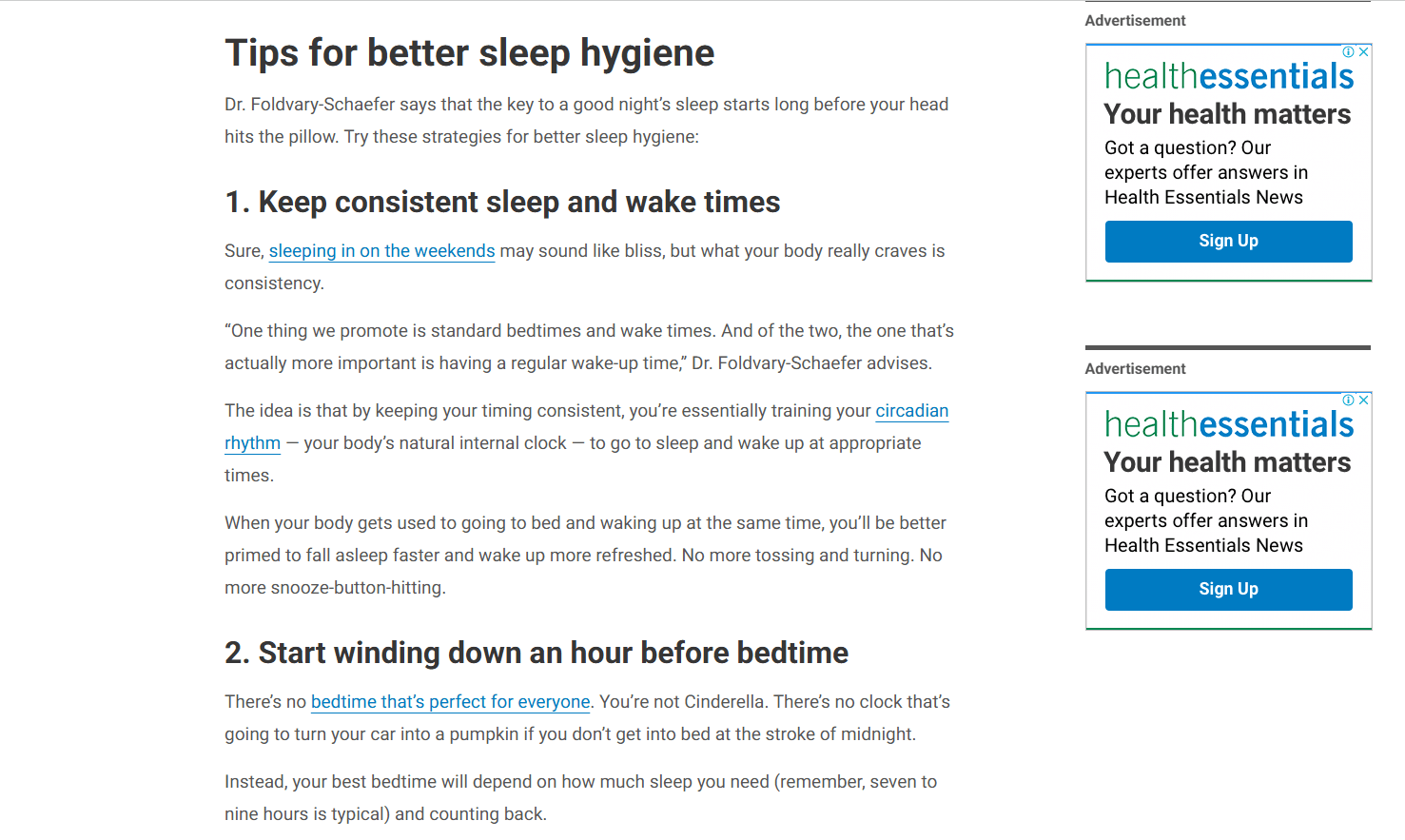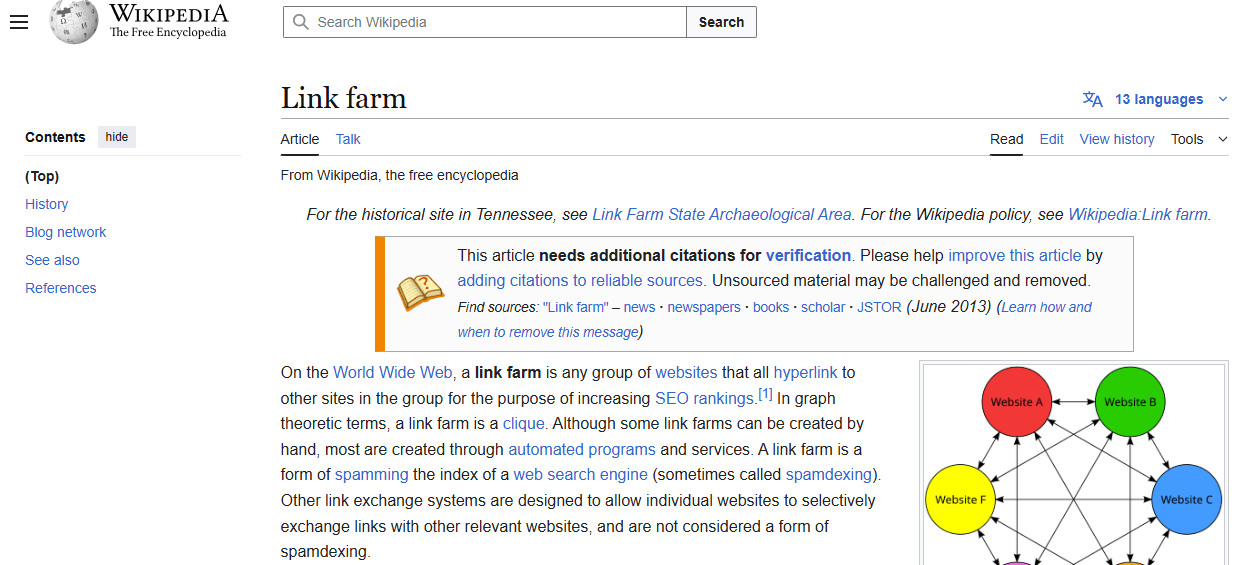Do Outbound Links Affect SEO?
Outbound links enhance user experience and signal page relevance to search engines, which maximizes SEO performance. However, not all outbound links are created equally, and the best ones are strategic and high-quality.
On this page, we explore everything you need to know about outbound links, including what they are, how you can use them, and how they impact your SEO efforts. If you’d like to speak with a specialist about SEO or outbound links, you can contact us at 888-256-9448.
How do outbound links help SEO?
SEO experts agree that outbound links are the most important source of ranking power because search engines view them as third-party votes and a sign of quality for your website.
Typically, outbound links pass more value than internal links because search engines believe that what other people say about you is more important than what you say about yourself. In other words, if more websites link to your site, you will appear to be a more credible source.
Outbound links also affect SEO in the following ways:
- Boost E-E-A-T: They boost a page’s expertise, experience, authoritativeness, and trustworthiness (E-E-A-T) by showing that your content is well-researched and backed by reliable sources.
- Strengthens your content: Contrary to popular belief, linking to other websites doesn’t send users away from your page or website. Instead, it strengthens your content by validating your claims, demonstrating industry expertise, and building trust with your audience.
- Improve user experience: Outbound links guide readers to related resources, encouraging them to stay longer on a page, click around, and minimize bounce rate. Because outbound links provide extra value and content, you reduce frustration and confusion when users leave your site.
- Encourage natural backlinking: A well-implemented outbound linking strategy can help build relationships with other high-quality sites, earning backlinks in return and strengthening SEO long term.
However, it’s important to note that Google doesn’t consider outbound linking as a direct linking factor, but it’s incredibly helpful to users and search engines.
Furthermore, Google’s John Mueller has stated that linking to other websites does not inherently improve your site’s SEO. The primary purpose of outbound links should be to provide value to users, not to manipulate search rankings.
Why are outbound links important?
Outbound links influence how search engines and users perceive your content. They help search engines rank your website higher while providing readers with more relevant and helpful content.
Below, we answer the question of why are external links good for SEO.
1. Heightens popularity and trust
Search engines, like Google, aim to show searchers the most relevant results for their search queries. And external links are a great metric for determining the popularity of a given web page. Backing claims and citing facts with outbound links also fosters trust, which 88% of internet users admit is the main reason they engage with a website.
The more high-quality sites link to your page, the more popular it appears. This sends positive signals to search engines and can boost a page’s rank in search results, meaning that more searchers will click and view the content.
Outbound links make your content more shareable by making it more helpful, useful, and shareable, which improves page popularity and brand visibility. They also strengthen your relationships with other industry experts, brands, and content creators who can draw more attention and traffic to your content.
2. Enhances website relevance
Outbound links provide important clues about a page’s relevance to search engines by showing them what content on the site is about. Search engines want users to find the information they are looking for, and when you include links to helpful content, you are doing them a great service.
The anchor text used is the best indicator of the content on the target page or website. For example, if you are linking to a page about cat food, you wouldn’t make your anchor text say “dog toys for sale.” Instead, stick to “cat food for sale” to provide appropriate context and prove relevance to search queries.
The target and source page, as well as the domain contained in a link, also provide helpful hints to search engines about a particular page’s relevancy.
Since links point to related content, search engines can better establish knowledge hubs on the Internet that they can use to verify a page or website’s importance.
In other words, linking out to relevant content helps search engines understand your niche, and it can increase trust in your website.
3. Builds site reputation and trust
Outbound links impact the reputation of your site in numerous ways.
For instance, sites with zero external links are dead ends, and people don’t like dead ends. They make your website appear unhelpful and inferior, which negatively impacts your rankings in search results.
Contrastingly, linking out to spammy sites negatively reflects on your own website. That’s because the minute someone clicks on a link to a spam site, they’ll always remember that you sent them there and likely associate your website with the spam content.
Contrastingly, not including any outbound links on your website equals subjecting your audience to reading a research report without a bibliography. People will wonder where you are getting the information and if it’s coming from a high-authority source.
Ultimately, including outbound links to relevant, high authority sources will boost your reputation and help you appear as a more authoritative source. This builds trust among your audience and boosts your reputation as a knowledgeable source.
4. Increases content value
No matter how great your website is, it will never contain all the relevant information someone might be looking for about a specific topic. By linking out to other helpful content, you can increase the value your website provides to visitors and make their experience more rewarding.
Outbound links fill in content gaps for your audience and provide deeper learning opportunities by guiding readers to additional insights, tools, and data.
As a result, people know that you publish and link to quality content, they will want to keep coming back for more, and consider your site a more valuable source of information. It boosts their confidence in your knowledge base, establishes you as a topical authority, and strengthens your site’s perceived value.
5. Encourages backlinks
When you link to other credible sources on the web, they are more likely to link back to your site. It encourages bloggers, journalists, and website owners to engage with your site and link to your content. I
Including links to relevant content also signals that you want to participate in the web’s natural linking environment or ecosystem. It may attract more backlinks, mentions, and traffic from other high-quality traffic sources.
Or alternatively, unlock guest posting opportunities, partnerships, and inclusion in industry roundups. This improves your site’s perceived authority, boosts your rankings in search results, and helps more people discover and interact with your business.
We foster and form long-term partnerships so that your business has long-term results.
Over 90%
Outbound linking best practices
Outbound links are a powerful tool for boosting SEO and building credibility, but it must be done strategically.
Below, we take a look at some outbound linking best practices that can help your website get the most out of your SEO strategy.
- Use descriptive anchor text: Always use a clear and relevant anchor text that describes the topic or keyword on the target page. This will improve usability for both users and search engines.

- Look for natural linking opportunities: Be keen on including relevant, outbound links naturally in your content. Some natural linking opportunities include explanations to technical references, providing additional points of view, and including stats and studies.
- Link to relevant and high-quality sources: Not all outbound links contribute to your website’s credibility and authority. Always link to high-quality websites and avoid low-quality, spammy, competitor, and unrelated sites, which can harm your site’s trustworthiness.
- Ensure external links open in a new tab: To keep readers on your website for longer, configure the outbound links to open in a new browser tab. This improves user experience and site performance without disrupting the reader’s original flow.
- Make outbound links no follow: Prevents credit from being passed to other websites linked to from your site by using no follow links. These instruct search engines not to count links to pages as “votes” in favor of the other page or website.
- Avoid overlinking: Too many outbound links are a nightmare! They annoy website visitors and may attract a penalty from Google, especially if they’re unnatural or irrelevant. Too many outbound links can distract readers and send people away from your website.

Improve SEO with strategic outbound linking
Although outbound linking is not a direct linking factor, it does help with how users and search engines perceive your content. It’s also a crucial part of your SEO strategy that enhances your site’s credibility, authority, and effectiveness.
WebFX is a full-service digital marketing company that helps businesses implement a holistic SEO strategy that includes content optimization, strategic link building, and more. Contact us today to talk with a strategist and check out our comprehensive SEO plans and pricing. We’re excited to work with you!
Marketing Tips for Niche Industries
- CBD SEO: 5 Tips for Creating a Cannabis SEO Strategy
- CBD SEO: 5 Tips for Creating a Cannabis SEO Strategy
- CPA SEO Services: Market Your CPA Firm with SEO
- Dental SEO: a Beginner’s Guide to SEO for Dentists
- Does SEO Work for Credit Unions?
- Driving Cutting-edge Results with WebFX
- Earn More Business with Pest Control SEO
- Earn More Business with Pest Control SEO
- Ecommerce SEO
- Healthcare SEO Pricing: How Much Does Medical SEO Cost?

Get Found on Google
FAQs about outbound linking for SEO
Below, we answer some frequently asked questions about outbound linking to impact your SEO.
Do external links help seo?
Yes. External links help with SEO, although not as a direct ranking factor. But indirectly by improving content quality, credibility, and user experience.
Will linking out send my hard-earned visitors away?
No. Outbound linking will not drive traffic away from your website. Instead, linking out helps to build better relationships and earn more backlinks and referral traffic.
Do outbound links directly improve Google rankings?
No outbound links don’t directly boost Google rankings but have indirect SEO benefits, like encouraging backlinks, improving content quality, supporting topical relevance, and boosting user experience.
How many outbound links are too many?
There’s no official limit on the number of outbound links to include on a page, but you can avoid overlinking by ensuring your page doesn’t feel cluttered or distracted. You should also avoid linking out for SEO and adding links that are forced, unrelated, or low-quality.











